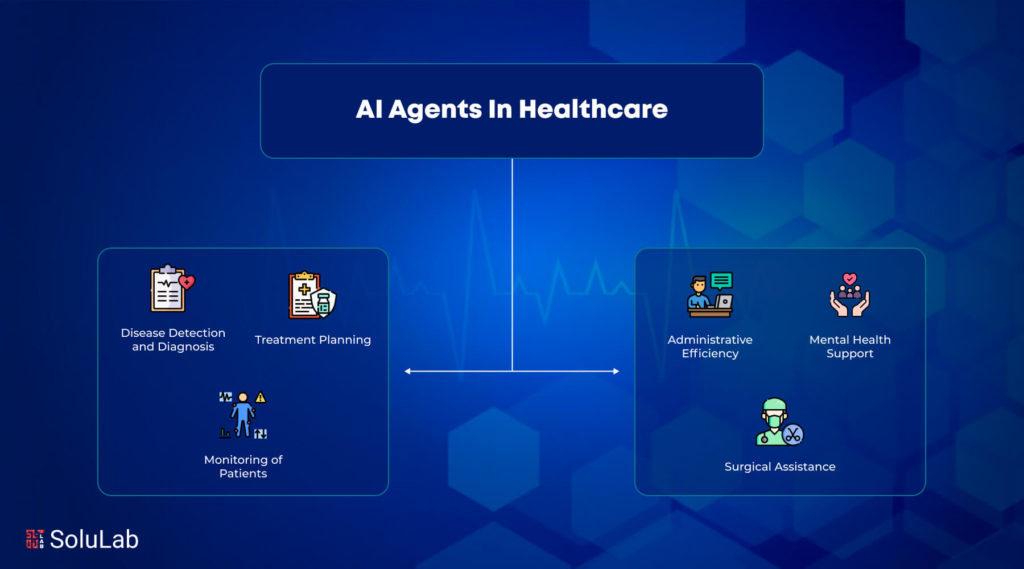All About Elder Insurance Policy: Checking Out the Advantages and Value of Protection
Elderly insurance coverage is crucial for older adults, resolving their distinctive healthcare requirements and economic issues. With various coverage alternatives available, understanding these differences is crucial. Medicare, long-term treatment, and supplementary plans each deal distinct advantages. Navigating via the intricacies of elderly insurance coverage can be difficult. What aspects should senior citizens think about when picking the right protection? The solutions may considerably influence their wellness and economic safety.
Comprehending the Fundamentals of Senior Insurance

Types of Elder Insurance Policy Protection
Different sorts of insurance policy coverage are offered to provide to the unique demands of older adults. Medical insurance is important, with alternatives such as Medicare, which supplies considerable medical coverage. Supplemental strategies, understood as Medigap, help cover out-of-pocket prices not included in Medicare (Punta Gorda Medicare Agency). Long-term care insurance policy is an additional essential option, dealing with potential costs associated with aided living or assisted living facility care.Life insurance coverage continues to be considerable, supplying economic protection for beneficiaries after the policyholder's death. Last expenditure insurance policy is specifically created to cover funeral prices, alleviating the economic burden on family members. In addition, vital ailment insurance policy uses a safeguard by offering a swelling amount payment upon medical diagnosis of extreme problems, aiding with medical expenses.Each kind of insurance coverage serves various functions, permitting seniors to customize their insurance coverage intends to satisfy specific health and monetary needs, inevitably advertising tranquility of mind throughout their retired life years
The Duty of Medicare in Senior Health Care
As people age, Medicare plays a crucial function in supporting their health care needs by giving necessary insurance coverage for a variety of clinical solutions. Developed in 1965, Medicare is a government program made especially for senior citizens and certain younger individuals with handicaps. It includes different components, consisting of Component A, which covers healthcare facility keeps, and Component B, which concentrates on outpatient care and preventive services.Medicare likewise offers Part D, a prescription drug strategy, assisting elders handle medicine costs. This all-inclusive coverage substantially minimizes the monetary problem connected with healthcare expenses, guaranteeing that senior citizens obtain essential therapies without excessive out-of-pocket expenses. Furthermore, Medicare Advantage plans supply added choices, including vision and dental coverage, which improve overall health monitoring. By assisting in access to medical care services, Medicare not just promotes far better health outcomes but additionally adds to the overall health and peace of mind for seniors steering with their gold years.
Long-Term Care Insurance: What You Required to Know
What options exist for making certain lasting treatment needs are met as individuals age? Lasting care insurance (LTCI) is an important alternative designed to cover assistance with everyday tasks, such as bathing, dressing, and eating. This kind of insurance aids minimize the financial burden of treatment services not usually covered by Medicare, consequently providing satisfaction for insurance holders and their families.LTCI plans differ significantly concerning advantages, protection limitations, and expenses. People must very carefully analyze their wellness, family members background, and financial scenario before selecting a plan. Additionally, it is suggested to purchase LTCI early, as costs can raise with age or decreasing health.While lasting treatment insurance policy can be complex, it plays a considerable role in making sure that maturing individuals get the treatment they need without depleting their financial savings. Recognizing the numerous aspects of LTCI is important for effective long-term preparation.
The Benefits of Supplemental Insurance Plans
Supplemental insurance coverage plans deal extra coverage that can bridge the voids left by main health insurance coverage, making sure that individuals have accessibility to required medical solutions without sustaining overwhelming out-of-pocket expenditures. These strategies are especially helpful for elders, as they usually encounter higher medical care expenses because of persistent conditions and age-related issues.By covering services like dental care, vision, and listening device, supplementary insurance policy boosts overall health and prevents economic stress. Additionally, some plans supply important disease or crash coverage, using financial assistance during unforeseen health crises.The adaptability of additional insurance enables people to customize their coverage to match specific requirements, providing assurance. Furthermore, as main insurance coverage might not completely cover important medications or therapies, supplementary strategies can aid minimize these monetary problems, making sure seniors maintain their lifestyle while managing medical care expenses effectively.
Browsing the Registration Refine for Elder Insurance Coverage
Guiding with the registration process for elderly insurance coverage needs a clear understanding of eligibility needs, which can differ significantly between strategies. Senior citizens must likewise take the time to contrast various alternatives to discover the ideal suitable for their requirements. Furthermore, being conscious of vital registration dates is crucial to ensure they do not miss out on vital possibilities.
Comprehending Qualification Requirements
Just how can senior citizens assure they satisfy the eligibility demands for insurance policy benefits? To navigate the enrollment process successfully, elders ought to initially understand the details criteria established by insurance providers. These frequently include age, residency status, and medical history. Lots of plans need candidates to be at the very least 65 years old, while others may use insurance coverage to more youthful individuals with impairments. In addition, documentation such as evidence of income or prior insurance may be essential. Elders ought to likewise understand enrollment periods, as missing these windows can result in delayed protection. By gathering required details and evaluating personal situations, senior citizens can boost their possibilities of certifying for the insurance benefits they need, ensuring detailed coverage as they age.

Comparing Different Plans
What variables should elders take into consideration when comparing various insurance coverage strategies? They should assess protection options, consisting of hospital remains, outpatient solutions, and prescription drugs. Next off, the expenses related to each plan, such as copays, this post deductibles, and premiums, are vital to evaluate for budget management. Furthermore, the network of medical care carriers is significant; seniors ought to confirm whether their liked medical professionals and hospitals are consisted of. Additionally, comprehending the plan's out-of-pocket maximum can help handle prospective expenses. It is also vital to evaluate client service rankings and the convenience of accessing treatment. By taking into consideration these factors, elders can make informed decisions that ideal fit their medical care requirements and economic scenarios, guaranteeing they select a strategy that provides suitable protection and comfort.
Secret Enrollment Dates
Understanding vital enrollment days is essential for elders aiming to secure the appropriate insurance protection. The Medicare Open Enrollment Duration, which occurs each year from October 15 to December 7, permits elders to review and readjust their coverage choices. During this time around, individuals can register in, button, or decrease plans scot-free. Furthermore, elders need to be aware of the Initial Enrollment Duration, which lasts for seven months, beginning three months prior to they turn 65. For those eligible for Medicaid, registration is readily available year-round; however, certain target dates might obtain specific programs. Knowing these dates warranties that seniors can take complete advantage of offered advantages and avoid potential gaps in insurance coverage. Timely activity throughout these periods is imperative for perfect wellness and financial safety.
Tips for Picking the Right Insurance Coverage
Choosing the ideal insurance policy protection can usually feel overwhelming, especially for seniors navigating various choices (Senior Insurance Agent). To simplify this process, it is important to assess individual needs, including health status, monetary situation, and future medical needs. Researching different strategies is necessary; seniors should contrast premiums, deductibles, and insurance coverage restrictions throughout providers.Additionally, seeking advice from with an accredited insurance coverage agent can give tailored support and clear up complicated terms. Evaluating each policy's exclusions and advantages assurances informed decisions. Senior citizens should additionally take into consideration the network of medical care providers readily available under each plan, as this can significantly impact accessibility to needed services.Lastly, evaluating customer solution ratings and the insurer's reputation can aid recognize trusted business. By following these tips, seniors can make educated selections that line up with their healthcare requirements and financial capabilities, inevitably protecting the right insurance policy coverage for their special circumstances
Often Asked Inquiries
Just How Do Pre-Existing Conditions Influence Senior Citizen Insurance Eligibility?
Pre-existing conditions typically influence elderly insurance eligibility more helpful hints by possibly restricting or boosting costs insurance coverage options. Insurance firms may evaluate health and wellness histories, leading to greater exemptions or costs, which can complicate accessibility to needed medical care for elders.
What Is the Average Cost of Elder Insurance Coverage Premiums?
The average cost of elderly insurance costs varies widely, influenced by factors such as age, health and wellness, and place standing (Punta Gorda Medicare Agency). Normally, premiums range from $200 to $600 monthly, depending on the certain coverage chosen
Can Seniors Get Approved For Financial Aid With Insurance Policy Prices?
Senior citizens might get financial assistance with insurance expenses through numerous federal government programs, charitable organizations, or state campaigns. Qualification typically relies on income, properties, and particular program needs, supplying vital support for their medical care requires.
Are There Fines for Late Registration in Elder Insurance Coverage Plans?

How Typically Can Seniors Adjustment Their Insurance Strategies?
Elders can usually change their insurance coverage strategies during marked registration periods, such as the yearly navigate here Open Enrollment Duration or Special Enrollment Durations. Outside these times, changes might be limited, depending upon the specific plan and supplier policies.
Verdict
In recap, elderly insurance policy is important for guaranteeing the wellness and financial protection of older adults. By recognizing the numerous kinds of coverage, consisting of Medicare and long-term care insurance, elders can make informed decisions that fit their one-of-a-kind requirements. Supplemental prepares better boost this protection, supplying added assistance. Steering with the registration procedure and picking the ideal insurance can considerably influence their lifestyle, providing peace of mind and securing against unexpected expenses. Elderly insurance policy includes a variety of coverage alternatives especially made to meet the needs of older adults. Long-lasting care insurance coverage is one more vital alternative, resolving prospective expenses connected to aided living or nursing home care.Life insurance policy continues to be considerable, offering monetary safety and security for beneficiaries after the policyholder's passing away. Supplemental insurance policy prepares deal additional coverage that can connect the gaps left by primary health insurance policy, ensuring that people have access to needed medical solutions without incurring frustrating out-of-pocket costs. Investigating various strategies is important; seniors need to contrast premiums, deductibles, and insurance coverage restrictions throughout providers.Additionally, consulting with a licensed insurance policy agent can give customized guidance and make clear complex terms. By comprehending the different types of protection, consisting of Medicare and long-term care insurance coverage, seniors can make enlightened choices that match their unique needs.